“3M is moving another family here,” Sankar announced one evening. “The guy’s name is Ray. I don’t know him, but they’re coming for their look-see visit next week. Do you want to take them out for dinner?”
I recalled our own look-see visit in January, 2010, sixteen months ago. It seemed like years ago, the city wintry and strange and both of us tentative, intimidated. Now Istanbul was in full spring bloom—and increasingly it felt like home.
Before I answered Sankar, I hesitated. I’d gotten used to spending my evenings doing two seemingly contradictory activities: resting and obsessing about the next day’s teaching. But I knew this wasn’t really making me a better teacher. On the few occasions when I hadn’t given the next day much thought, my lessons had turned out just fine. I decided I could go out to dinner, carry on a conversation, and perhaps even get home after my bedtime without professional disaster.
I didn’t hold out much hope, however, that we would become friends with this new couple. I had rarely found 3Mers kindred spirits. In Sankar’s thirty years with the company, we had been to an array of Christmas parties, anniversary dinners, and marketing and technical banquets. The events always featured cocktail hours in which I made small talk with accompanying spouses, mostly female. Then we sat down to eat and made more small talk. I don’t know if others began friendships at these events, but I generally found the conversations strained.
Sankar ‘s colleagues liked him, and he spoke positively about nearly everyone at the office, but he was focused and highly competitive, and rarely thought to ask a colleague to do something outside the office. Except for taking an occasional international visitor out for dinner, the two of us did not have a 3M social life.
Now I told myself to expect an evening of light chitchat, with the exception that I might have to answer a few questions about how to settle in and adjust to Turkey.
The next Tuesday evening, Waverley and Ray Eby arrived at our house for hors d’oeuvres. They were both tall and thin, Ray with dark hair and Waverley with pale blond hair and skin, wearing stylish pink glasses. We sat on the balcony with glasses of merlot and bowls of pistachios. They exclaimed at the view—Judas trees were in full flower and dotted the forested coastline in purple—and started to talk. Before I knew it, an hour had passed and we were late for our dinner reservation down on the Sea Road.
The pair described interesting, unusual lives. Both hailed from Mississippi, yet surprisingly had no trace of Southern accents. They had spent a year in their twenties trailing the Grateful Dead around the U.S.; had both obtained law degrees; and then had moved to Washington, D.C, Waverley to teach at Georgetown Law School, and Ray to study in the Great Books program at St. John’s College. They now lived in St. Paul with five children ranging in age from six to eighteen, the youngest three adopted and African American. Waverley, now a stay-at-home mother, talked about the varied personalities of her kids and the challenges of relocating a large family overseas, but mostly expressed enthusiasm about the transfer.
The four of us sat for hours that evening—next day’s teaching be damned. With the setting sun’s rays glancing off the water and onto the old seaside houses of Asia, we discussed the merits of various Istanbul neighborhoods, the best strategies to get to work, and the multitude of must-see Turkish attractions.
When the topic of what I did in Turkey came up, Sankar broke in, to my surprise, telling them about my job, and announcing that “Sue works harder than I do.” I wasn’t sure that was true, but it was gratifying to hear the pride in his voice. And it was also gratifying to hear myself produce confident information about grocery stores, newcomer groups, farmer’s markets, and expatriate outings. This pair seemed to be bringing out the best in us. How lucky we were that they would soon be our neighbors.
In any move to a new place the adjustments—to climate, work, friendships, getting around—all take place concurrently. When the move is overseas and language and culture are thrown in, this can be overwhelming. Everything is new, everything demands extra attention at the same time. But then all of the adjustments start to wane—also concurrently—and there comes a point at which not much is new anymore. I was just arriving at that point, discovering that I finally possessed some understanding of what had been, up until recently, a completely foreign place.
When had I arrived at this new level of competence? Had the new knowledge come in gradually, dripping in with each new experience, as if through an IV? Or had it rushed in one night when I slept, relaxed and unaware?
The feeling—not entirely unfamiliar, as I’d also experienced it in Yemen and Costa Rica—was pure exhilaration. It was as if I had extra space in my lungs or enhanced vision to see all the color and beauty around me. And this exhilaration had a physical component as well, a loosening in my shoulders and a decrease in the amount of muscle strain I habitually felt. I wasn’t as tense every time I went out; often I was barely tense at all. I caught myself smiling instead of frowning in concentration, and I was now able to step back calmly and patiently when a situation looked to be challenging.
From here on, new adjustments would pop up, but they would no longer be the norm; they would occur against a background of relative ease. Now I could finally put myself into a Turkish context and see, instead of a middle-aged, struggling expatriate, a woman with some competence, kind of like the woman I had been back home. I wasn’t yet a pro here; I had misses in addition to hits, but the wider brushstrokes of the culture now made sense. Perhaps best of all, this newfound confidence freed up emotional energy, making space for flexibility toward new situations Sankar and I were bound to face, and changes in routine that were ahead.
At Özyeğin, big Nergis announced a different schedule for summer. We teachers would teach fifteen, not twenty hours each week: five hours on each of three days. A few months before, the idea of standing in front of a class for five hours would have thrown me. But now it didn’t. I grimaced, but knew that I could do it. Besides, the up-side was two days off each week.
And summer would bring visitors. In early June, just as the school year was ending, Laurie, my mainstay in the months before I moved to Turkey, and her husband, John, were planning to arrive from the States.
I was looking forward to our friends’ visit, and to being a more skillful hostess than I’d been earlier. At the beginning, with our earliest guests, we had simply been clueless. With Jonathan we’d walked the long way through hot streets to catch a cab. We had piled in the car to take Jean and Mary to the Old City, only to sit in fierce traffic as the tram glided past us toward the attractions. We visited the Hagia Sophia at peak hours, and showed up at the scenic Hamdi restaurant with no reservations, annoying the staff. Now we knew better. In fact we had already identified and then paid a visit to the hotel in the Old City where Laurie and John wanted to spend their anniversary night, to make sure it was a suitable choice.
Laurie and John had almost cancelled their visit. The media frenzy over the recent news of Osama bin Laden’s capture and death had unnerved them, convincing them that a Muslim country would be unfriendly to visiting Americans.
I knew there was no need to be afraid; I knew our visitors wouldn’t be in any danger. How did I know this? Well, first of all, I’d observed the Turkish reaction. At ÖzU, just hours after the news came (we found out early on Monday, May 2; it was evening on Sunday, May 1 in the U.S.), a Turkish colleague mentioned it at a staff meeting, commenting that she was pleased, but that it was never good news when someone died. Another Turk expressed disbelief, and yet another shook her head and remarked, “he’s been dead for years.” After less than a minute, the conversation turned to other topics. At 3M, Sankar heard no comment at all, and neither of us had heard anything after that day.
And beyond that, I had simply taken in enough that I could now surmise that, unless one of their own was harmed, Turks were generally blasé about Middle Eastern mayhem. I also knew, however, that it is difficult to counter fear, to soothe people with the unconvincing sounding, “Don’t worry, nothing is going to happen.” I waited a few days to reply to the message Laurie had sent, and during those days, coverage in the U.S. dropped, and they decided to go ahead with their trip.
Our plans were to show Laurie and John around Istanbul and then, since my spring teaching module would be over, accompany them southwest to Ephesus and environs. I knew ÖzU was going to give us teachers a weeklong break before its summer session began, but our department was on a different schedule from the rest of the university and, typically, big Nergis hadn’t announced when our week off would begin.
As the module and exams finished, she sent a memo saying, “teachers must stay at school all day Wednesday to finalize grading.” Drat. We had planned to leave town with Laurie and John that morning.
What to do? We decided Sankar would drive Laurie and John down to Ephesus early on Wednesday, as planned. Then, at some expense, I would catch an evening flight from Istanbul to Izmir and hire a car to drive me to Ephesus.
SELI had scheduled a potluck for Wednesday noon, and had posted a food and beverage signup sheet in the conference room. Nearly half of the teachers had scribbled “beer” or “wine” on the sheet. I found this surprising—I still expected Muslims to eschew alcohol—but I missed the larger clue about the actual length of our workday.
On Wednesday morning, we entered our students’ scores into the ÖzU system and discussed close cases individually with Big Nergis. Then lunch—and ample tippling—began. After that, to my surprise, everybody packed up and left for home. They had all known the workday would end after lunch. But since my flight didn’t leave until 6 pm, I remained, sitting alone in a strangely silent office. When, inevitably, Nergis came by and peered in, asking, “What are you doing here, Susan?” I could only laugh ruefully: another learning experience.
Sankar and I spent a day touring Ephesus with Laurie and John. Then we headed to the coastal resort town of Çesme (fountain). It was Friday afternoon and the weather was perfect, but the roads and beaches were nearly deserted. We even had the hotel pool to ourselves. Standing outside a carpet shop where Sankar was helping Laurie and John negotiate for a kilim, I figured out the reason.
First, although it was mid-June, schools were still in session, so families with children were not yet free for vacation travel. And second, a national election was scheduled for Sunday, just two days hence. I was pretty sure Turks who wished to vote—and current Prime Minister Erdoğan, running for his third term, inspired strong feelings, both positive and negative—needed to remain in their home precincts. Ha! It was our beginner’s luck to have picked the best possible summer weekend to visit the Aegean coast.
I stood, preening over my deduction skills. Looking at the shops nearby, the Turks walking past, and even the ocean peeking from behind the streets of shops, I realized they no longer looked so foreign. They looked like places I could figure out, places where I could, with just a bit of effort, understand and be understood.
We had planned to return to Istanbul from Çesme Saturday afternoon after some sunbathing. But in Turkey, historical sites always beckon, and there on our map, less than fifty miles out of our way, were the ruins of Pergamon, an ancient Greek city perched on a hilltop outside the town of Bergama. The four of us decided to take off from Çesme early to squeeze in the ruins, and Sankar and I felt confident enough to follow a new route and still make our late afternoon ferry reservations.
After briefly getting lost driving through modern Izmir, we arrived in Bergama. To our surprise, traffic was heavy. What was going on? As we inched along Ataturk Bulvari, I noticed a plethora of temporary-looking street signs and, with a little help from my pocket dictionary, was able to determine that the town was expecting a campaign stop that day from Kemal Kiliçdaroğlu the main opposition party’s candidate for prime minister. We managed to turn off the main road, circle the town, and locate the gondola up to the majestic ruins, serenely perched high above the commotion.
The next morning, as we dropped Laurie and John off at the airport, we learned that Mr. Erdoğan had won, with 49.8 percent of the vote.
The summer module—fifty talkative Intermediate students, all of whom managed to fail the course—ended in late July, and I packed up and headed back to Minnesota for the month of August. Sankar would follow. This routine was the same as it had been when we lived in Costa Rica, except now the back-to-school items I was looking for (mainly better whiteboard markers, which I planned to hoard) were for me, not for Angela and Greg.
I carried a list of household items to buy at Target—ziplock bags, ranch dressing mix, canned pumpkin—that due to their unavailability had become almost talismanic. I was sure I’d be a much happier person when I had these things with me in Istanbul.
In mid-August, Sankar arrived, and we attended a near-daily round of get-togethers with friends and family. We had been home just seven months earlier, but this time something was different: neither of us could stop talking about Turkey. About the friendly, hard-working people. About Turkish cuisine, bursting with fresh vegetables. About municipal services—roads, buses, subways, boats—that were in excellent repair—what a contrast to our own recession-neglected infrastructure. Sankar wanted people to know that, although Turks were Muslim, they tended to keep their religion to themselves. And with India’s chaotic crowds in mind, he sang praises about the orderliness of Turkish public spaces. Finally, we both raved about the historical sites we’d seen. All of this may have bored our listeners, but at least the two of us were thinking along the same lines.
While we were in Minnesota, Waverley and Ray and their brood arrived in Istanbul and begun settling in. Since we were away, Umit was assigned to drive them around. It was Ramazan, however—and this meant he was refraining from eating and drinking during the daytime hours. It was a sign that we had emerged from our newcomer self-centeredness that we worried about him sitting, thirsty, in a hot car day after day, waiting for the Eby’s to complete myriads of newcomer errands.
In late August, Sankar and I flew back to Istanbul. We noticed that the construction across the street from our apartment had progressed, and that our apartment swimming pool—in full operation this year—was now surrounded by colorful patio furniture. Our upstairs neighbors, Sema and Pinar, greeted us like long-lost friends. It was a delight to put our new items away and to skillfully restock our apartment with groceries, and I reflected on how busy and happy the last few months had been.
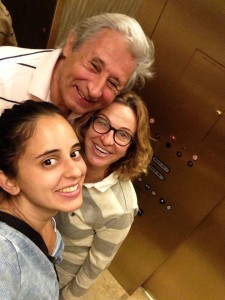
“I’m going to the yarn bazaar tomorrow,” said the voice on the phone. I had answered it in surprise; my Turkish cell phone rarely rang. It was Waverley, calling to see if I wanted to join her and perhaps take in a historic mosque or two.
The yarn bazaar? I had never heard of a yarn bazaar, even though I enjoyed knitting. How had Waverley found out about a place like this so soon? It looked like I was going to have to be quick to keep up with her! The outing sounded like great fun, but alas, I had to say no. The next day, in fact most of the remaining days of 2011, I would be in the classroom.
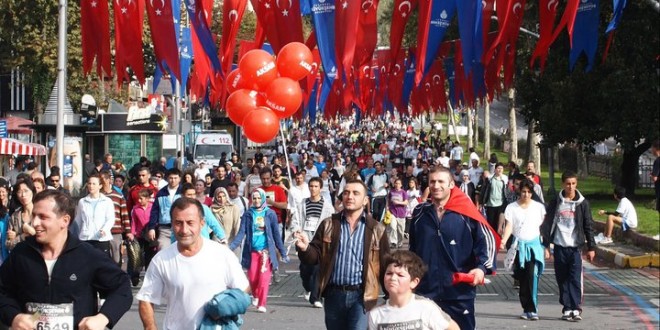
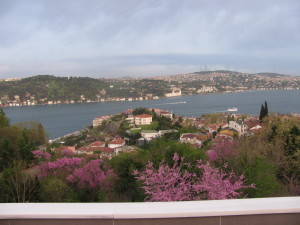
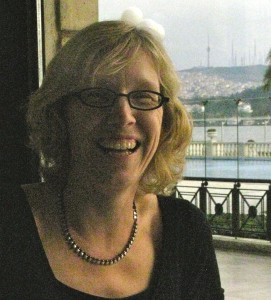

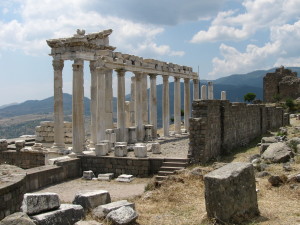

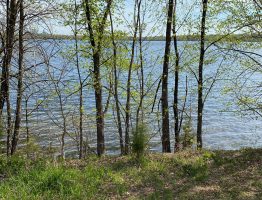

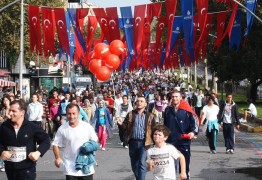
I have noticed you don’t monetize your blog, don’t waste your
traffic, you can earn additional cash every month because you’ve got hi quality content.
If you want to know how to make extra money, search for: Ercannou’s essential adsense alternative
I have noticed you don’t monetize your website, don’t waste your traffic,
you can earn extra bucks every month. You can use the best adsense alternative for any type of website (they approve all websites),
for more info simply search in gooogle: boorfe’s tips monetize
your website